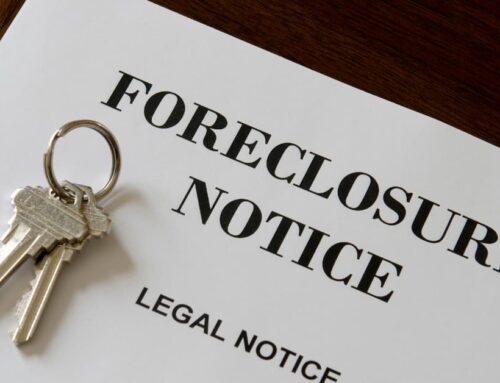When it comes to owning a property, unforeseen circumstances such as job loss, medical emergency, or other financial hardships can make it difficult to keep up with mortgage payments. For homeowners in this situation, a short sale may be a viable option to avoid foreclosure and potential financial ruin.
A short sale is a process where the lender agrees to accept less than what is owed on a property in return for a release of the loan debt. While the process can be complex, it often provides much-needed relief for homeowners struggling to pay their mortgage, helping them avoid the harsh consequences of foreclosure. Understanding the differences between a short sale and foreclosure can offer clarity on why a short sale may be the better option in certain situations.
If you’re considering a short sale, it’s important to understand the steps involved, the requirements you need to meet, and the benefits it can offer. In this article, we’ll explore these topics in detail, as well as possible alternatives to a short sale.
For more information on short sales, contact the real estate attorneys at Kelly Legal Group. We are experts in real property law and can help you decide if a short sale is right for you. Reach out online or by calling (512) 505-0053.
What Is a Short Sale?
A short sale is a real estate transaction in which the owner sells the property for less than the amount owed on the mortgage. This type of sale occurs when the property’s value has decreased to a point where the mortgage balance is more than the current market value of the property. The person selling property may choose to pursue a short sale in order to avoid foreclosure and the negative impact it can have on their credit score.
In a short sale, the property owner negotiates a deal with the lender that allows them to sell the property for less than the amount owed on the mortgage. The lender must agree to the short sale and forgive the difference between the sale price and the mortgage balance. This forgiveness of debt is known as “mortgage debt forgiveness” or “mortgage debt relief”.
A short sale is different from a foreclosure, where the lender takes legal ownership of the property after the borrower is unable to make their mortgage payments. A short sale is a voluntary agreement between the lender and borrower to sell the property for less than the outstanding loan balance.
Short sales can be complicated processes and require the expertise of real estate agents or real estate attorneys who are experienced in negotiating with lenders. The process can take several months and involves a great deal of paperwork and communication between the property owner, their lender, and the buyer.
From the buyer’s perspective, a short sale can be an opportunity to purchase a property at a lower price than its market value. However, it is important for buyers to do their due diligence and understand that the process can take longer than a traditional real estate transaction, and there may be additional costs and fees associated with the sale.
How Does a Short Sale Work?
The short sale process can be complex and time-consuming. It involves negotiating with the lender, providing documentation, and finding a buyer for the property. Here are the steps you need to take as a property owner:
Contact Your Lender:
The first step in a short sale is to contact your lender and let them know that you are interested in pursuing a short sale. They will provide you with the necessary forms and information to begin the process.
Find a Real Estate Lawyer:
You will need to engage real estate law services and work with a real estate lawyer who has experience in short sales. They will help you make sure that your rights and interests are protected throughout the entire process.
Prepare the Documentation:
You will be asked to provide a hardship letter, proof of income and assets, a list of liens, and other documentation as required by your lender. Your real estate lawyer will be able to assist you to ensure you provide the correct documentation.
Submit the Short Sale Package:
Once you have all the necessary documentation, you will need to submit the short sale package to your lender. This package will include a purchase agreement, a listing agreement, and all the required documentation.
Wait for Approval:
Your lender will review the short sale package and make a decision. They may request additional documentation or ask for changes to the purchase agreement.
Close the Sale:
Once the lender approves the short sale, you can close the sale with the buyer.

What Do You Need to Have on Hand?
During the short sale process, the property owner, or borrower, must provide certain documents to the lender, which may include:
Hardship Letter:
A hardship letter explains the borrower’s financial hardship and why they are unable to continue making mortgage payments. This letter should include specific details about their current financial situation, including any recent changes to their income or expenses.
Proof of Income and Assets:
The lender will need to see documentation of the borrower’s income and assets, including pay stubs, bank statements, and tax returns. This information will help the lender determine whether the borrower is truly unable to make payments.
List of Liens:
The lender will also need to know if there are any other liens on the property, such as a second mortgage or a home equity loan. These liens could complicate the short sale process, so it is important to disclose them upfront.
Comparative Market Analysis (CMA):
A CMA is a report that compares the borrower’s property to similar properties in the area that have recently sold or are currently on the market. This report will help the lender determine the fair market value of the property.
Purchase Agreement:
Once a buyer has been found for the property, the current property owner and the buyer will need to sign a purchase agreement that outlines the terms of the sale.
Closing Documents:
The closing documents include all of the paperwork that is necessary to complete the sale, including the deed, the bill of sale, and any other legal documents.
What Are the Benefits of a Short Sale?
A short sale can offer several benefits to property owners facing financial difficulties. Here are some of the most significant benefits:
Avoiding Foreclosure:
One of the primary benefits of a short sale is that it can help property owners avoid foreclosure. Foreclosure can be a devastating experience that significantly impacts an individual’s credit score and financial future. A short sale provides a way for property owners to sell their homes without going through foreclosure, which can be a more dignified and less traumatic experience.
Debt Relief:
When a lender agrees to a short sale, they agree to accept less than the outstanding balance on the loan. This means that property owners can often walk away from the sale with some debt relief. While there may still be a bit of outstanding debt that needs to be repaid, a short sale can provide relief from overwhelming mortgage payments.
Control Over the Sale Process:
In a short sale, property owners have more control over the sale process than they would in a foreclosure. Property owners can choose their own real estate agent, set the price for the sale, and negotiate with potential buyers. This can provide a greater sense of control and ownership over the process, which can be reassuring during a difficult time.
Potential for a Fresh Start:
For property owners who are struggling with overwhelming debt and daunting mortgage payments, a short sale can provide a way to start fresh. By selling their home and reducing their debt, property owners can begin to rebuild their financial lives and move forward with a sense of hope and possibility.
Preservation of Credit Score:
While a short sale can impact a property owner’s credit score, it is often less damaging than a foreclosure. By avoiding foreclosure, property owners can preserve their credit score to some extent and be in a better position to rebuild their credit in the future.
Overall, a short sale can provide a way for property owners to avoid foreclosure, gain some debt relief, and regain control over their financial lives.
It is important to work with a qualified real estate attorney with extensive legal real estate knowledge to determine whether a short sale is the right option for your specific situation.

Alternatives to a Short Sale
While a short sale can be a beneficial option for homeowners who are struggling to make mortgage payments, there are also alternative options available that may be better suited to their specific situation. Here are some alternatives to consider:
Loan modification
Loan modification involves working with your lender to change the terms of your mortgage in order to make it more affordable. This can include lowering your interest rate, extending the length of your loan, or reducing the principal balance. It’s important to note that loan modification may not be an option for everyone, and it can take time and effort to negotiate with your lender.
Deed in Lieu of Foreclosure
A deed in lieu of foreclosure is an agreement between the borrower and the lender where the borrower gives up ownership of the property to the lender in exchange for the cancellation of the remaining loan balance. This option can be quicker and less damaging to your credit than foreclosure, but it may still have a negative impact.
Foreclosure
Foreclosure is the legal process where the lender takes possession of the property due to non-payment of the mortgage. While foreclosure can have serious consequences, it may be the only option for some homeowners who are unable to make mortgage payments.
Bankruptcy
Filing for bankruptcy might be a way to stop foreclosure and discharge debt. However, it can have long-term consequences on your credit and financial future.
It’s important to consider all of your options and work with an experienced real estate lawyer to determine the best course of action for your specific situation.
Which Option Is Best for You?
Choosing the right option for your financial situation can be a challenging decision. While a short sale might seem like the ideal solution for some, it may not be the best option for others. Each situation is unique and requires careful consideration of different factors.
If you are facing financial difficulties, it is essential to explore all the available options and weigh the pros and cons of each. Your final decision will depend on your individual circumstances.
Ultimately, the best option for your case will depend on a variety of factors, such as the amount of debt you owe, the value of your property, your financial situation, and your long-term goals. It is crucial to discuss your options with a real estate lawyer who is familiar with federal, state, and local laws. They can evaluate your case and guide you through the decision-making process.
Contact Kelly Legal Group Today
A short sale can be a viable option for property owners who are unable to make their mortgage payments and want to avoid foreclosure. It can provide some debt relief and help borrowers avoid the negative consequences of foreclosure, such as a damaged credit rating or filing for bankruptcy.
However, it is important to understand that a short sale can have both benefits and drawbacks, and it is crucial to weigh all options. There are also alternative options to a short sale, such as loan modification or a deed in lieu of foreclosure. Each option has its own advantages and disadvantages, and what works best for one person may not work for another. You should consult with an experienced real estate attorney from a top law firm before making a decision.
At Kelly Legal Group, we are experts in real estate law and can provide comprehensive legal assistance for all aspects of real estate transactions and disputes. Our team of skilled lawyers has a deep understanding of the legal complexities involved in short sales, loan modifications, and other real estate matters. We have a proven track record of success in handling both residential real estate and commercial real estate matters and will work diligently to help you achieve the best possible outcome.
Contact us today to schedule a consultation with one of our real estate law experts and receive the guidance you need to make informed decisions about your property.






